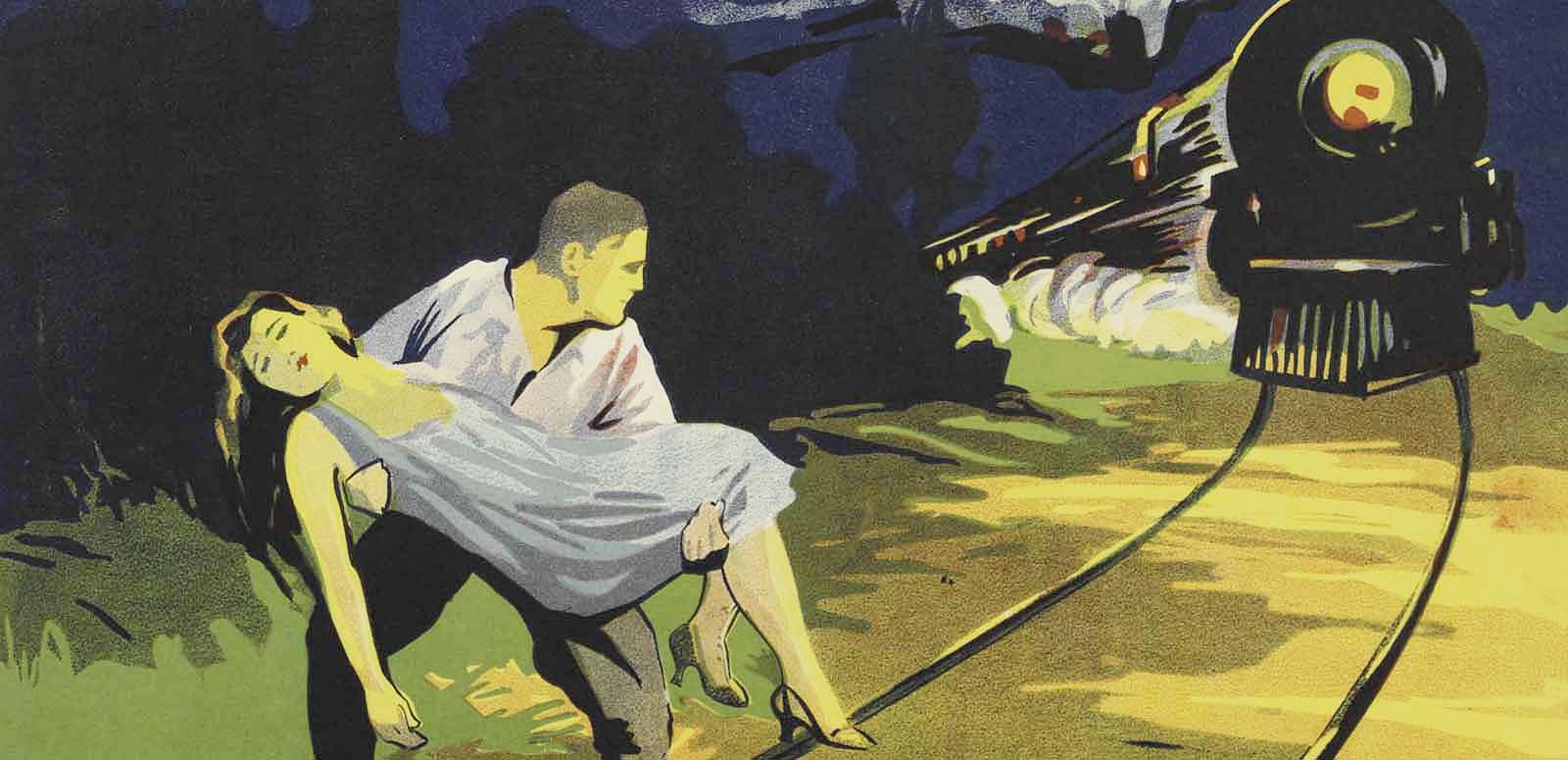

Cinema Art poster collection
Cinema Art Films Ltd was an early film distribution company that operated from 1927-1932. It played an important role in early Australian film history, exposing Australians to many international productions, in particular celebrated UFA productions like Metropolis (Fritz Lang, Germany, 1927). We've acquired a selection of Australian designed posters for their releases, which you can see in our Cinema Art posters curated collection.
All the posters are lithographs and we collected them for their aesthetic value. Several were produced by the famous Richardson Studio and many of them feature Cinema Art’s logo: a blindfolded Lady Justice in front of a map of the world with Australia and New Zealand prominent. To modern eyes, the adoption of a blindfolded figurehead by a company that distributed silent films seems like a perplexing choice.
Not a lot is known about the Cinema Art company, but manager Leslie Keast appeared before the 1926-28 Royal Commission into the Moving Picture Industry in Australia. There he discussed several topics including why his company chose to distribute foreign films and his attitudes to censorship.

[We feel] Australian audiences would be pleased to see [films depicting] countries other than America.
When asked whether importing foreign films was harming the Australian film industry, Leslie Keast responded that audiences ‘would be pleased to see depicted countries other than America’. He was also questioned as to whether his company's promotion of German films was creating a ‘German atmosphere’ in Australia. He went on to explain that Cinema Art carefully chose films focused on ‘subjects we believe will elevate the industry and encourage the desire of films of an artistic nature, while of course, due regard will be given to popular pictures’.
Keast also raised concerns about the detriment censorship caused to the quality of films. ‘In London the authorities are much more lenient than they are here ... By the time they have passed through the censor here, they may be reduced to the value of an ordinary program picture, where previously they had outstanding merit on account of the little tit-bits they contained.'
Despite bringing such acclaimed films as Metropolis (1927) and Alfred Hitchcock’s Blackmail (UK, 1929) to Australia, the company struggled financially and in 1931 registered to wind up voluntarily. Nevertheless, their posters survive in the NFSA collection to remind us of the company's mission to bring a broader range of films to Australian audiences.
View the Cinema Art posters curated collection.
The National Film and Sound Archive of Australia acknowledges Australia’s Aboriginal and Torres Strait Islander peoples as the Traditional Custodians of the land on which we work and live and gives respect to their Elders both past and present.


